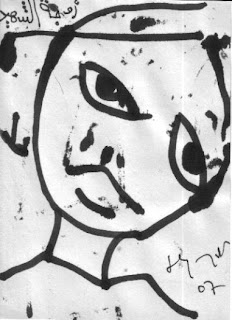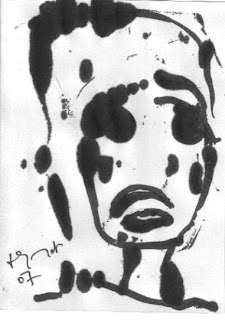This week, most Lebanese bloggers discussed the forming of the special tribunal for Lebanon at the United Nations and the continuing war between the Lebanese Army and the Fateh al Islam militants/terrorists. The first is the special tribunal of an international character that was passed under UNSCR 1757 to try those responsible for the terrorist crime that killed the former Lebanese Prime Minister Rafiq Hariri and others. Some bloggers see this as the beginning of a new era in Lebanese history. The second is the fighting that started three weeks when a group of Fateh al Islam militants/terrorists attacked and killed Lebanese soldiers, some of whom were not on duty, and hid in the Nahr al Bared Palestinian refugee camp. What followed was that the army enforced a blockade on the camp and engaged the militants in fierce fighting that is still going on today. Some of the bloggers report on their visits to the refugee camps.
So what did some of the bloggers say about these two events?
On the special tribunal
Laure Ghorayeb posted a series of her drawings about the tribunal. This one here is titled “la femme du martyr” or “the martyr's wife”:

Independence05 wrote about the days and hours before the voting in the United Nations on the resolution concerning the special tribunal:
On the social level, those last 10 days were not busy at night as it is usually. Malls, movie theatres and restaurants had no waiting lines, empty parkings and innocent traffic jams. Lebanese are not afraid as much as they are sick of the situation. Delivery and DVDs are the Lebanese’s best friend those last few days. There are always exceptions of those who go out and party whatever the situation is, but these people are rare.
Perpetual Refugee took another approach. He began by a flashback, describing his impressions and personal experiences in Lebanon during the past decade, and then drew parallels with today in light of the tribunal:
Some things haven’t changed that much since then. Assad. The son. Is still stealing our angels and replacing them with demons. While Hariri. The son. Continues with the ambitious (and flawed) plans to bring back heaven to our holy land. We tasted it. A sampler really. If only for a brief moment. We tasted it. Then the flaws became apparent. […]
Today, we edge closer to that taste of heaven. It’s seasoned with a tablespoon of justice. A gallon of revenge. And a flash of a middle finger. Today Hariri, the son edged one past Assad, the son. Today, while we prepare for a taste of heaven, we prepare for a taste of hell. And in the name of the fathers. We continue our march. Towards our intertwined destinies.
From Beirut to Beltway argued that many battles were fought to establish the tribunal. And cautions that many more battles are expected. He argued that Saad Hariri and March 14 (pro government group) will make a mistake if they decide to stop now and start a new phase with the opposition:
LBC viewers Thursday night who watched Saad Hariri's interview with Marcel Ghanem saw a victorious Saad Hariri, inarticulate as ever, extending an olive branch to Hizbullah. Saad, perhaps asked by the Saudis to give Iran a chance, decided Hizbullah was no longer an Iranian tool—but almost a victim, like all other Lebanese, of an Assad regime plot to destroy Lebanon. The son of Rafik Hariri said it was not normal for him not to be meeting with Nasrallah “in a country like Lebanon”, calling for “turning a new page”. He also called for dialogue between the Future movement and Hizbullah, in a way reminiscent of the calls for dialogue Hizbullah made after they thought they won the Lebanese street, thinking they could impose their way. In fact, the difference between Saad and Hassan Thursday night was little. If you substituted “Syrian” with “American” or “Israeli”, you'll get nearly the same discourse, and the same disregard for state institutions.
If Saad cannot articulate his thoughts, and is verbally stuck between the Saudis and Jumblatt, Nasrallah, he must know, has no genuine interest in the state's institutions. For that, Saad Hariri and his March 14 are foolish to pause the fight and pretend they could turn a new page as if nothing had happened, as if the cabinet were not still under siege, and Hizbullah not casting doubt over the army's operation to (partially) root out terrorism.
Other blogs like Beirut Spring and Jamal's Propaganda also posted about the tribunal, but these were mentioned in the GVO roundups during the week.
On the fighting:
Laure Ghorayeb also posted a series of drawing on Nahr el Bared, of which the one posted here is called “Nahr el Bared 21”.

Land and People used sarcasm to suggest that poverty is a possible cause for the instability and unrest that is spreading around the country:
Half the Lebanese people are poor […] (this is confirmed by Oxfam study posted earlier and by the findings of the UN survey). The Lebanese government is unimpressed, and the minimum wages have been frozen since 1996, but not the prices of basic commodities. The worst regions: South Lebanon, Bekaa and North Lebanon. No surprise if most of the ‘turbulence’ in Lebanon originate from these regions. Could this be linked to the events in Nahr el Bared? Noooo of course not. In Nahr el Bared, it is just Palestinians trying once more to destroy Lebanon. Ask any Lebanese. Especially (but not exclusively) those aligned with the government.
Lebanese Renaissance also pointed out the widening rift between the rich and poor in Lebanon and declared that it was unacceptable. Although he did not relate this topic to the fighting going on:
I took a look at the people around me and the cars, and I just got angry. Here we have people starving in Lebanon, and people not able to pay their bills or even afford electricity, and then you have THOSE people. This just goes to show you the level of social inequality going on in the country. The widening gap between the rich and the poor of Lebanon, which is of course totally unacceptable, by my standards or any person with a conscience.
Sietske in Beiroet, on one of her visits to the north, wrote about the surreal normality of life just a few kilometres away from the fighting despite the backdrop of sounds from artillery fires:
One thing that never ceases to amaze me about war is how life behind the front line goes on as if there is no war. Less than 3 kilometers always from the camp, which is now completely off limits to journalists, you cannot even reach the northern entrance anymore, people are going about their daily business. Under the cracking of the cannons (shells make an odd cracking sound when they are launched, like lightning strikes) kids play soccer in the streets, friends lounge on an assortment of benches in the garden while playing cards and smoking argileh, cars are being repaired in the garage and the baker bakes his bread.
Remarkz addressed several questions raised due to the recent wave of violence taking place. Among them, is the question of the impact that the fighting in the north had on the Lebanese political groups.
The most interesting aspect of all this is how government, the opposition and even somewhat neutral ‘bystanders’ in the presses, blogs etc. are just working the problem through the ethical dilemma they face: Should we back the Lebanese army? or should we voice our concerns against the Palestinian civilians? Should we accuse the US of fomenting trouble, and wanting to find a pretext in order to either send more aid or just build a military base?
Michael Totten wrote that Al Qaeda’s coming to Lebanon was inevitable for these reasons among others:
Fatah al-Islam terrorists in the Palestinian Nahr al-Bared refugee camp (which is an urban ghetto in Tripoli, not a tent city) are, reportedly, mostly not Palestinian. No one has suffered more from Lebanon’s worst fighting since the civil war ended than the Palestinian civilians of Nahr al-Bared. After decades as second-class non-citizens living in dejection and squalor, they are now human shields in a battle between foreign terrorists and the host country. […]
Lebanon is a weak and divided country. It is also, by far, and despite Hezbollah’s presence, the most liberal and democratic of all Arab countries. More than two thirds of the people who live there (Christians, Shias, and Druze) are considered infidels fit for slaughter by the salafist groups. A large percentage of Sunnis, in Beirut especially, are irreligious and bourgeois and modern. I, for one, am surprised it took Al Qaeda so long to move on them.
Anecdotes from a Banana Republic also visited the north and reported on the protest and her conversation with the displaced among other things:
A little girl and her friends came over to tell us that “their” camp is much nicer than this one, as if apologizing for a messy house to unexpected visitors. “My camp is beautiful. Not like this,” she said, waving her hand dismissively at her surroundings.
Finally Blacksmiths of Lebanon is still posting images and updates on the fighting and other matters.







2 comments
Who is Michael Totten ?
I posted this comment on Land and People.
I think there is a clear link between neoliberalism and the rise of instability and wars in the developing world and one should always remind people of this. Wars in Lebanon, Palestine, Sudan, Congo, Iraq, Afghanistan, etc.. are wars against the poor, against pooor Americans sent to fighting, against poor lebanese, against poor Africans… against poors inside and outside the countries who launch and fight these wars in an alliance between the leader of the neoliberal wolrd, the US and local governments who accept US interventions and make themselves accomplices of the crimes against civilians that are the mian results of these wars.